The Historical Role of Islam: A Concise Note
The broad verifiable effect of Islam traverses north of 1400 centuries, leaving an enduring engraving on the world's social, scholarly, and political scene. Starting in the 17th century CE in the Bedouin Promontory, Islam quickly spread across different regions, from North Africa's Atlantic shores to Southeast Asia’s idyllic islands. In light of the lessons of Prophet Muhammad ﷺ, the religion has altogether molded social orders, administration, and the course of history.
Since its initial days, Islam has cultivated solidarity among shifted networks, rising above ancestral and ethnic limits. The quick development of the Islamic realm worked with broad exchange organizations and the trading of information between the East and West. Islamic researchers have made vital commitments in fields like math, space science, medication, and reasoning, saving and communicating old style information during Europe's Dark Ages.
Political Impact
Islam's political impact and the ascent of strong domains like the Umayyads, Abbasids, and Ottomans played imperative parts in molding the historical backdrop of the Center East, North Africa, and beyond. These realms prospered as focuses of culture, workmanship, and getting the hang of supporting advancement and social mixing.
The Islamic Golden Age, traversing from the 8th to the 14th hundred years, addresses a zenith of Islamic development. During this period, urban communities like Baghdad, Cordoba, and Cairo flourished as signals of information, drawing in researchers from different foundations. The interpretation and protection of Greek, Roman, and Persian texts into Arabic were instrumental in saving and expanding upon old insight.
Social Pluralism
Besides, Islam has been instrumental in advancing social pluralism and strict resilience inside its regions. The ‘Ḏimmī’ framework permitted Jews, Christians, and other strict minorities to rehearse their religions under Islamic rule, adding to a rich embroidery of social trade. Beyond the realm of Islam, interactions with various civilizations, including the Byzantines and Crusaders, had a profound impact on history, shaping both sides. Additionally, the exchange between the Islamic world and Europe during the medieval era also facilitated the sharing of ideas and technological advancements.
The historical role of Islam is a complex tale of exploration, spreading knowledge, blending cultures, and political influence that still shapes today's world. It's important to understand its intricate history to deal with the complexities of our modern global society and appreciate our shared human history. Islam, for instance, demonstrates adaptability across different eras. Some also argue that Islam's significant social concepts hold great significance. Islam is often seen as a continuous tradition that remains unbroken and steadfast. Islam's success wasn't primarily due to military strength or swords, as assumed by many, but rather because of its spiritual aspects and social cohesion. The term "Islam" itself demonstrates its essence in peace and submission to Allah the Almighty. Unlike all other religions which are influenced by the situations they come from, Islam has remained steadfast in its teachings and transactions, yet it has the adaptability across different eras and practices. So, it is not that Islam is not compatible with the current world scenario, rather there are areas where Islam is flexible and has always kept a harmonious co-existential environment for any matter-in-question, unless and until the basic principles and teachings are at stake.
Indian Scenario
Observing Hindus, as some view it, they are regarded with hostility by Muslims. Expressing such sentiments is deeply troubling as the reality lies in another corner of the ground. Ignoring historical context, this attitude undermines the future prospects of India. But nowadays in India, Hindus don't really engage in deep studies about Islam and its different cultural aspects. As a result, even though India reserves the seat of being one of the largest countries, it often has trouble handling its own problems and conflicts.
Despite the fact that many Muslims have resided in India, they often find themselves seen as outsiders. There are certain reasons for this perception, primarily due to the historical context of Islam's arrival in India as a conquering force. They held authority through their rulers for around a century, resulting in divisions between those who emerged as "winners" and "losers." However, it's important to move beyond these past events. Muslims played a significant role in India's struggle for independence, which should not be overlooked. Despite their achievements, some Hindus still view Muslims negatively, even though they have their own orderliness and concerns within their religious community, particularly regarding certain groups within their religion. These factors contribute to the underlying reasons for divisions within the nation.
Conclusion
The renowned historian "Gibbon" remarked that Islam is "one of the most remarkable revolutions that has left a lasting and unique influence on nations worldwide." Within just 50 years of its emergence, Islam's impact extended across nations, reaching as far as the Atlantic Ocean. Additionally, Islam produced several exceptionally skilled leaders like Tariq Bin Ziyad, Khalid Bin Valīd, and Umar Bin Khattab. The Roman Empire flourished for 700 years, yet ironically, Islam remarkably overcame it within merely a century. This raises a crucial question: how did Islam achieve such numerous victories with relatively fewer resources? Islam highlighted that Egypt, Turkmenistan, Panjab, Spain, France, Constantinople, and the Mediterranean were not under Rome's dominance. The notion that the vulnerable could succeed through peaceful perseverance was initially dismissed. However, Islam demonstrated the validity of this idea. Islam composed a fresh chapter in human history. It eradicated and discarded cruel traditions. Simultaneously, Islam imparted knowledge to future generations. While the Greek Empire became associated with superstition, Islam emerged prominently, not reliant on the support of the Roman Empire but standing on its own energetic foundation.
In a nutshell, the verifiable job of Islam has been significant and expansive, molding the course of human civilization for north of 14 centuries. From its modest starting points in 17th century Arabia, Islam's effect on different parts of society, culture, science, and administration has been extraordinary. Throughout history, Islam has been engaged in the exchange of ideas and knowledge, leading to significant progress in fields like science, mathematics, medicine, and architecture during the Islamic Golden Age. Preserving and explaining ancient texts from civilizations such as Greece and Persia, it played a crucial role in setting the groundwork for the Renaissance in Europe.
References
Roy, M. N. (2015). The Historical Role of Islam. Creative Media Partners.
Aslan, R. (2005). No god but God: The Origins, Evolution, and Future of Islam. Random House.
Holland, T. (2013). In the Shadow of the Sword: The Birth of Islam and the Rise of the Global Arab Empire. Knopf Doubleday Publishing Group.
Hodgson, M. (1977). The Venture of Islam. University of Chicago Press.
Alkhateeb, F. (2014). Lost Islamic History: Reclaiming Muslim Civilization from the Past. C. Hurst & Co.
Armstrong, K. (2000). Islam: A Short History. Modern Library Chronicles.
Lapidus, I. M. (2014). A History of Islamic Societies (3rd ed.). Cambridge University Press.
Robinson, F. (1996). The Cambridge Illustrated History of the Islamic World. Cambridge University Press.
About the author
Ben Sahal is a research scholar in the department of Quran and Related Science at Darunnajath Islamic Complex.
Disclaimer
The views expressed in this article are the author’s own and do not necessarily mirror Islamonweb’s editorial stance.
2 Comments
-

I just read your article and I find it very informative, very inspiring. I would also like to extend an invitation to you to visit my website <a href="https://ypmalfitrah.sch.id/">Lembaga Pendidikan Islam</a> and we can collaborate with each other. warm regard.
-


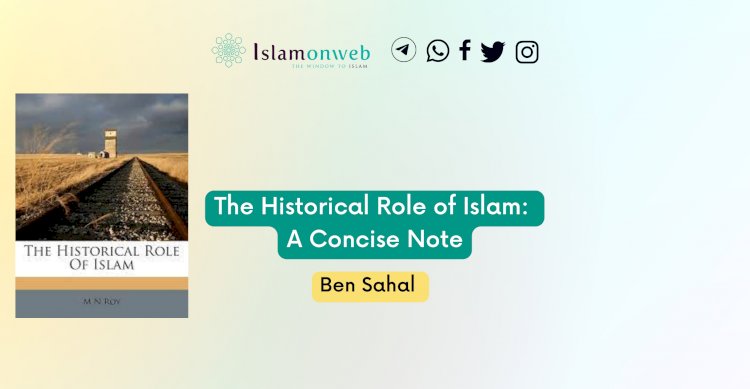



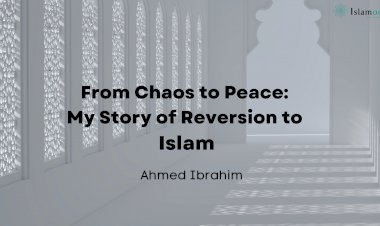
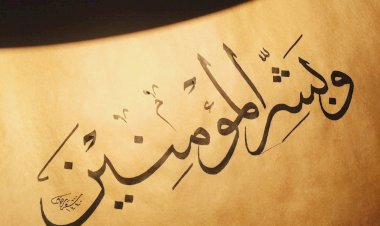
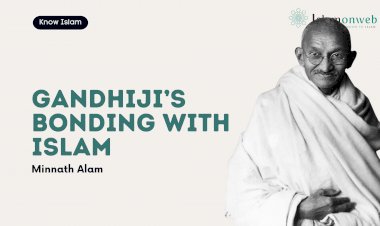

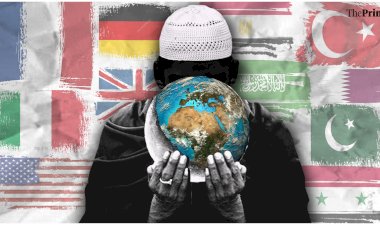














Leave A Comment